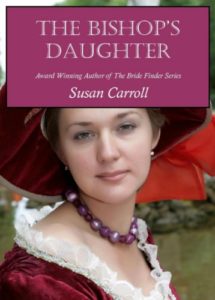
I’m doing it again.
The days are shorter, the nights are longer, and there is more time to snuggle on the couch reading. I could be diving into all the wonderful new literary fiction that’s out there (just found Margaret Atwood’s Hag-Seed on my library’s to-read shelves). I could be reading some other Shakespearean novels I’m come across in researching my latest article (two novels I know of featuring Amelia Lanyer as Shakespeare’s Dark Lady, not to mention that Elaine Scarry has a new theory about the lovely boy of the sonnets). I could even be catching up on the stack of books by local authors I’ve acquired from doing the book tour circuit this summer and Writers on the Avenue’s fiction writing workshops this fall.
But nope, I’ve been plowing through Susan Carroll‘s backlist. Specifically, the early Regencies. Specifically, the Regency romps.
Why? That’s precisely the question I’m asking myself.
One reason is that I signed up for Susan’s novel workshop through the Midwest Writing Center this fall. Five years of graduate study in creative writing—the MA from FSU, the MFA from Cornell—and I still feel like I have so much to learn. This is in no way a reflection on the beyond-excellent instruction I received from the amazing writers at both of those schools. Rather, I think it is a reflection of how truly slow a learner I am. And also, there I was writing short stories—which I pretend to know something about—and not novels, which I am learning how to write now, with the one I’ve been working on for how many years now.
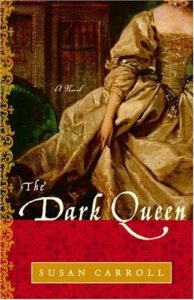 I started with The Dark Queen, the first in the series about a group of powerful women in Renaissance France who are rumored to be witches. It dovetailed with research into the other article I’m researching, on medieval magic and fairy lore, and it’s so far a terrific book. I’ve got my bookmark in it and will go back to it. But I decided that for purposes of “researching” the novel I’m writing, I would read some of Susan’s Regencies. I know she loves writing them, and I know she writes them well, and I’ve already read every single work by Georgette Heyer several times, so I’m in the market for something new.
I started with The Dark Queen, the first in the series about a group of powerful women in Renaissance France who are rumored to be witches. It dovetailed with research into the other article I’m researching, on medieval magic and fairy lore, and it’s so far a terrific book. I’ve got my bookmark in it and will go back to it. But I decided that for purposes of “researching” the novel I’m writing, I would read some of Susan’s Regencies. I know she loves writing them, and I know she writes them well, and I’ve already read every single work by Georgette Heyer several times, so I’m in the market for something new.
And now I can’t stop.
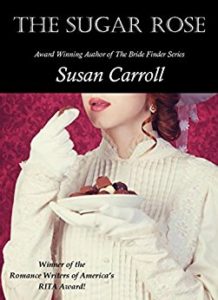 What I like most about these Regencies (at least the ones I’ve read so far) is that each heroine has her own individual quirk. Aurelia Sinclair of The Sugar Rose is what you would call plus-size, not at all like the willowy silhouettes in fashion. She swallows her frustrations along with her chocolate bonbons, a coping tactic I know well. Predictably—for what gives these books their appeal is that we expect, nay demand a certain outcome, though we are willing to be surprised as to just how the characters achieve their HEA—the man she comes to genuinely care for is the man who likes her at any size.
What I like most about these Regencies (at least the ones I’ve read so far) is that each heroine has her own individual quirk. Aurelia Sinclair of The Sugar Rose is what you would call plus-size, not at all like the willowy silhouettes in fashion. She swallows her frustrations along with her chocolate bonbons, a coping tactic I know well. Predictably—for what gives these books their appeal is that we expect, nay demand a certain outcome, though we are willing to be surprised as to just how the characters achieve their HEA—the man she comes to genuinely care for is the man who likes her at any size.
The rest of the appeal, I’m coming to realize, is not the escape to a different time and place. It’s having a fantasy setting in which to work out our own modern dilemmas (like, how can women learn to love themselves within a fashion culture that is obsessed with thin, young, flawless beauty?) and get a healthy perspective on them. Or at least read about someone who deals with them more courageously (and more effectively) than we do.
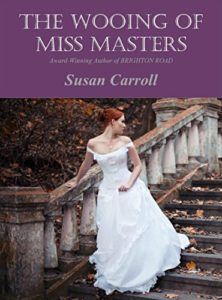 In The Wooing of Miss Masters, Audra is not at all duchess material. She is a reclusive bluestocking who would rather sit next to her own fireplace and read a book than go to a ball and try to catch the attention of a duke. Of course, this being a romp, after several hilarious, aggravating, and interesting encounters, the duke will decide that he must have Miss Masters, and find a way to win her heart. Nerdy, socially inept girls CAN win the handsome jock! Hooray and huzzah!
In The Wooing of Miss Masters, Audra is not at all duchess material. She is a reclusive bluestocking who would rather sit next to her own fireplace and read a book than go to a ball and try to catch the attention of a duke. Of course, this being a romp, after several hilarious, aggravating, and interesting encounters, the duke will decide that he must have Miss Masters, and find a way to win her heart. Nerdy, socially inept girls CAN win the handsome jock! Hooray and huzzah!
My favorite heroine so far has to be Gwenda from Brighton Road. She’s the author who writes thrilling Gothics for Minerva Press, has a family legendary for their madness, and does the hero a favor by critiquing the marriage proposal she accidentally overhears them making. This one had the most flavor of a Heyer (as well as the plot device about the road trip gone horribly wrong) plus several in-jokes for the authorly reader, and the hero who is first humiliated and beaten, then softened and won over, by the heroine’s winning antics.
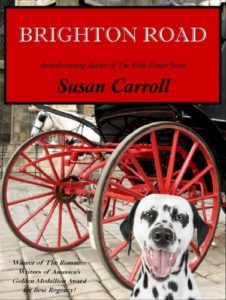 And, because it’s Christmas and because I have reached the age where I like to celebrate the season by reading holiday-themed books, I also read Christmas Belles, which is about a family of four sisters who eventually find their HEA. Chloe, the lead, is the dreamy one who eventually has all her own dreams come true.
And, because it’s Christmas and because I have reached the age where I like to celebrate the season by reading holiday-themed books, I also read Christmas Belles, which is about a family of four sisters who eventually find their HEA. Chloe, the lead, is the dreamy one who eventually has all her own dreams come true.
Is that the real appeal of books like these—they indulge the daydream of winning the affection of a handsome, attractive, capable man whose admiration and devotion will secure a girl lifelong sexual fulfillment as well as economic wealth and safety? Let’s not deny that social status as well as material comforts come in the package, as well as the hero’s sworn lifelong monogamous fascination and interest. It seems a rather adolescent fantasy, the longing for the prince as well as secure entry into the social world of rank and privilege. But it’s also a persistent one. For me the appeal of this fantasy lasted well into my 20s, and consuming romances with an insatiable appetite (a guilty pleasure I hid and denied during graduate school) was part of enjoying the excursions into Fantasy Land, rewarded with a HEA every time.
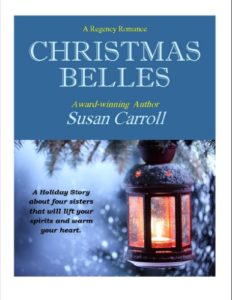 Now that I’m older, my fantasies are more about fulfilling quests, achieving career aspirations, and establishing myself in the world on my own terms, not in relation to someone else. Maybe that’s why I loved Disney’s latest animated feature Moana so much. After growing up on The Little Mermaid and Beauty and the Beast, and finding a new favorite in Mulan, I finally get a Disney princess who does something useful with her talents, like save the world—which gets me exactly in the fantasy nerve at this particular moment in my life.
Now that I’m older, my fantasies are more about fulfilling quests, achieving career aspirations, and establishing myself in the world on my own terms, not in relation to someone else. Maybe that’s why I loved Disney’s latest animated feature Moana so much. After growing up on The Little Mermaid and Beauty and the Beast, and finding a new favorite in Mulan, I finally get a Disney princess who does something useful with her talents, like save the world—which gets me exactly in the fantasy nerve at this particular moment in my life.
But there’s no denying that I return to the historical romances, and especially the Regency romps, for a particular kind of comfort, and a particular kind of joy. Sometimes I just don’t want deeply emotional sagas where tragedy strikes each generation of a family or the hero and heroine torture each other for 400 pages of the book. I don’t want to be confronted with social injustice or historical inequalities that can’t be cheerfully resolved by a plucky, insightful, determinedly upbeat heroine. Sometimes, let’s be honest, I don’t want to do with emotional and mature work of reading literary fiction and getting deeply inside the experience of another mind, another world.
Sometimes—especially when things outside are dark, the world seems overwhelming, or I feel stressed out and inadequate—I just want the sweet, easy fantasy. I want the chocolate bonbons.
So, as insurance against the winter getting too dark or too long, I’ve got Susan’s latest, Disenchanted, on pre-order. I’ll keep thinking about the romance formula and its enduring appeal, from its earliest beginnings until now. But I’ve also given myself something to look forward to in the new year. Because I can’t think of anything I love more than a book that takes a cynical, even ironic approach to the formulaic fantasy—and delivers a satisfying HEA nevertheless.
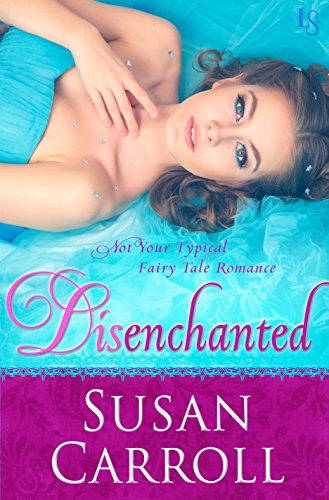

Read what makes you happy! It can’t always be heavy stuff. Balanced genre diet, my friend. 😉 And thank you — it looks like I have a new author’s works to explore!
You’ll like her, I think! Smart and funny heroines, and heroes who appreciate their wit. You are so right about the balanced diet — that, and we all need the occasional treat.